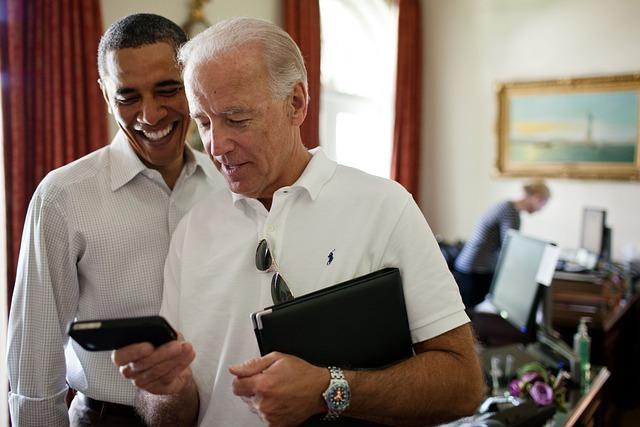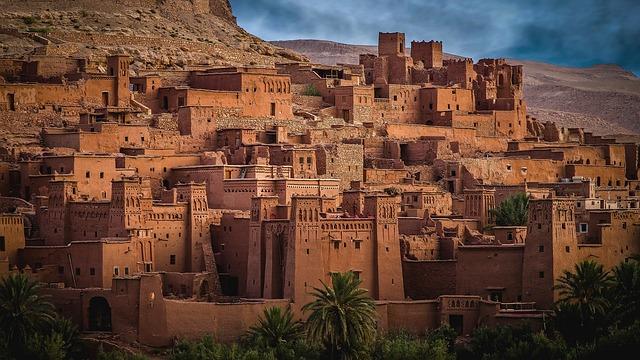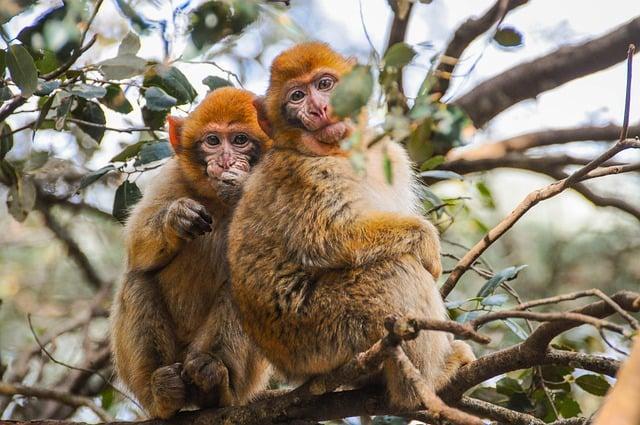Title: Morocco Eyes Vice-Presidency of the African Union Commission
as the African Union (AU) continues to shape the continent’s political landscape, Morocco is setting it’s sights on a strategic leadership role by vying for the vice-presidency of the African Union Commission. The nation’s bid reflects its ambition to enhance its influence within African affairs and to strengthen continental cooperation amid growing challenges. This move comes at a pivotal moment when the AU is grappling with issues such as regional stability, economic integration, and climate change. By pursuing this position, Morocco aims not only to reinforce its commitment to African unity but also to assert its role as a key player in promoting collective progress across the continent. In this article, we explore the implications of Morocco’s ambitions for the AU, the challenges it faces, and what this could mean for the future of African governance.
Morocco’s Aspirations for African Union Commission Leadership
In a bold move to strengthen its influence within the African Union, Morocco has set its sights on securing the vice-presidency of the African union Commission. This ambition reflects the nation’s desire to play a pivotal role in shaping the continental agenda and enhancing cooperation among African states.Morocco’s candidacy is rooted in its commitment to fostering regional stability, promoting economic growth, and addressing pressing challenges such as climate change, migration, and security threats. It aims to leverage its strategic geographical position and robust diplomatic relations to advocate for unity and collaboration among African nations.
The Moroccan government has outlined several key priorities that it plans to pursue if it takes on this significant leadership role. These include:
- Promoting sustainable Development: Advocating for policies that encourage eco-friendly practices and sustainable resource management.
- Strengthening economic Ties: Fostering intra-African trade and investment to bolster economic resilience.
- Enhancing Security Cooperation: Working with member states to combat terrorism and transnational crime through coordinated efforts.
- Advocating for Gender Equality: Supporting initiatives aimed at empowering women and promoting equal opportunities across all sectors.
Through these initiatives, Morocco envisions not only elevating its own status but also enhancing the collective capacity of the african Union to address the continent’s most pressing issues.

The Strategic Importance of the Vice-Presidency in African Governance
The role of the vice-presidency within the African Union Commission is pivotal for fostering cohesive governance across the continent. By holding this position, countries can not only amplify thier diplomatic presence but also influence key policy decisions that affect regional stability and development. The vice-president can serve as a vital link between member states, facilitating dialogue and collaboration on critical issues such as economic cooperation, conflict resolution, and human rights advocacy. As Morocco aspires to secure this role, it positions itself as a central player in shaping African unity and addressing the complexities of inter-state relations.
Additionally,the vice-presidency provides an opportunity to champion specific initiatives that resonate with Morocco’s national interests while aligning with broader continental goals. key areas of focus may include:
- Economic Integration: Promoting trade agreements and investments among African nations.
- Security Cooperation: Addressing transnational threats such as terrorism and organized crime.
- Climate Change Mitigation: Leading efforts in sustainable development and environmental stewardship.
Holding the vice-presidency grants Morocco not only the priviledge of shaping Africa’s agenda but also the obligation of steering collective action towards sustainable development, thereby enhancing its reputation and influence across the continent.

Regional Reactions to Morocco’s Bid for the AU Commission Role
As morocco positions itself for a significant role within the African Union Commission, regional responses reveal a complex landscape of support and skepticism. Many countries in the North African region, particularly those with historical ties to Morocco, have expressed backing for its bid. Nations such as Algeria and Tunisia remain cautiously optimistic, highlighting the potential for improved diplomatic relations through collaboration in this capacity. However, Algeria’s historical rivalry with morocco casts a shadow over its outright endorsement, making it a subject of considerable debate among political analysts.
In contrast,countries in Sub-Saharan Africa exhibit a mixture of enthusiasm and wariness. While several East African nations see an opportunity for enhanced cooperation and support for Morocco’s initiative, others are concerned about the implications of a North African nation gaining pivotal influence over pan-African decisions. Among the factors contributing to this ambivalence are national interests, regional alliances, and the ongoing dynamics of African unity.A recent regional poll illustrated varying degrees of support:
| Region | support level |
|---|---|
| north Africa | Strong |
| West Africa | Moderate |
| East Africa | Varied |
| Southern Africa | Wary |

Implications for Morocco’s Foreign Policy and Regional Influence
Securing the vice-presidency of the African Union Commission could mark a significant turning point for Morocco in bolstering its foreign policy objectives and enhancing its regional stature. This move is not merely about a position; it represents a strategic endeavor to articulate morocco’s vision for African unity and development. By positioning itself at the helm of the continental body, Morocco aims to influence critical discussions surrounding economic growth, security cooperation, and sustainable development across africa. This ambition aligns with the nation’s broader diplomatic strategy, which emphasizes multilateral engagement and partnerships with other African nations.
Such aspirations can reshape Morocco’s relationships within the continent and bolster its influence in key areas, such as:
- Economic Diplomacy: Promoting trade and investment initiatives that facilitate intra-African commerce.
- Security Initiatives: Leading efforts against regional extremism and instability, which have been a growing concern for many African nations.
- Cultural Diplomacy: Enhancing exchanges in education and culture, thereby strengthening regional ties.
This pivotal role would not only increase Morocco’s visibility but also enable it to leverage its historical and geopolitical ties with a range of African nations, thus redefining its role as a key player in the continent’s future.

Recommendations for Morocco to Strengthen Its Candidacy
To enhance its bid for the vice-presidency of the African Union Commission, Morocco should focus on cultivating stronger diplomatic relationships with other African nations. Engaging in bilateral talks with countries across the continent will create an atmosphere of unity and collaboration. Additionally, participating actively in regional and continental summits can showcase Morocco’s commitment to African solidarity and demonstrate its leadership capabilities. Strengthening partnerships through cultural exchanges and economic collaboration can further solidify Morocco’s position as a key player within the African Union.
Moreover, Morocco could benefit from strategically promoting its successful initiatives in sustainable development, innovation, and education. By highlighting its achievements in these domains, Morocco can present itself as a role model for other African nations. Implementing targeted campaigns that focus on shared interests such as climate change, youth employment, and health care can attract widespread support. Furthermore, Morocco should utilize social media channels effectively to disseminate information about its policies and initiatives aimed at contributing to the continent’s development.

The Future of African Unity and Cooperation with Morocco’s Involvement
As the African continent grapples with a myriad of challenges, Morocco’s strategic push for a vice-presidency within the African Union Commission signals a significant move towards enhanced regional unity and collaboration. Given its unique geographic position, Morocco stands as a bridge between Europe and Africa, emphasizing the need for collective efforts to address pressing issues such as security, trade, and climate change. The nation’s involvement in the African Union has potential implications that can reinforce cooperation across member states,foster dialogue,and cultivate a spirit of solidarity among nations.
With Morocco’s commitment to African unity, it is plausible to envision a future where African nations can enjoy benefits such as:
- Increased economic integration: Enhancing trade agreements and economic partnerships within the continent.
- political cooperation: Promoting stability and governance through shared political frameworks.
- Cultural exchange: Celebrating diverse heritages through joint initiatives and collaborative projects.
This vision aligns with Morocco’s historical ties and ongoing investments in various African sectors,ranging from infrastructure to education. The potential for establishing a cohesive policy approach among African nations could pave the way for a transformed continent that harnesses its resources and strengths collectively.
To Conclude
morocco’s bid for the vice-presidency of the African Union Commission marks a significant step in its renewed engagement with continental governance and collaboration. As the nation seeks to strengthen its influence within the African Union, this move reflects its commitment to addressing shared challenges facing the continent, including economic development, security, and climate change. should Morocco succeed in this endeavor,it could enhance its role as a key player in African diplomacy and further contribute to the integration and progress of the region.As developments unfold, the implications of this initiative will undoubtedly shape Morocco’s foreign policy and its relationships with fellow African states. The eyes of the continent will remain keenly focused on the outcomes of this pursuit and its potential impact on the trajectory of the African Union as a whole.







